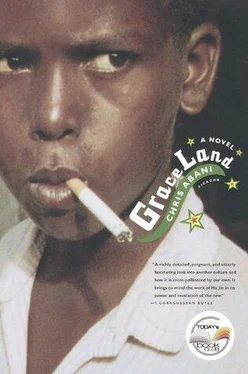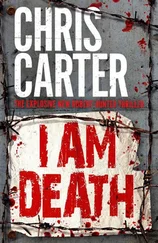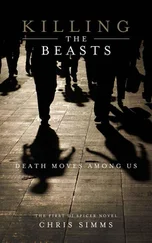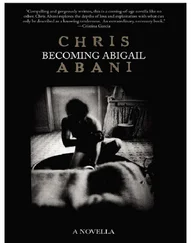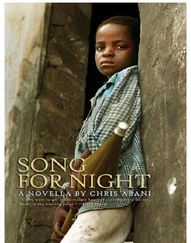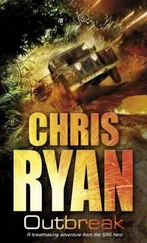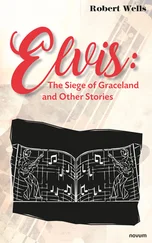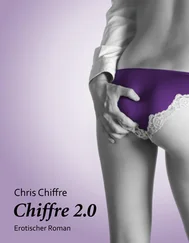The King marched at the head of the mob, singing in a deep baritone. Immediately behind him were the three druids. The rest of the mob was comprised of the curious, thugs looking for some trouble, market women and students. They all sang at the top of their voices as they marched on Ribadu Road, the seat of government.
“Who shall be free?” the King sang.
“Nigeria shall be free,” the crowd responded.
Like a strange pied piper, he picked up more and more people as he marched. No one had any clear idea why they were marching or where they were marching to. But that did not seem to stop them. The King, like Gandhi on his salt march, was resolute. Even the press joined the march. They had covered the Freedom Square raid, but this was much bigger.
Predictably the army soon got wind of the approaching mob and set up a barricade. The Colonel was there in person, having decided to put a stop to the irritation that the King had become. For the past few months, as the King’s media profile grew, the Colonel’s bosses brought the King up at every briefing.
The Colonel walked up to the barricade of tanks. “Who is in charge here?” he asked.
“Lieutenant Yar’adua reporting for duty, sir!”
“Listen, if you want to survive de day with your rank — when dat mob reaches here, do not open fire until I give de order. Understand?”
“Yes sir!”
“Good,” the Colonel said. He walked back to his car, a black BMW, and came back with a sniper’s rifle. He picked a spot ahead of the tanks and settled down to wait for the crowd.
They soon came around the corner, singing. The King was well ahead of the mob by at least ten yards. The Colonel was impressed by the size of the crowd that the King was able to muster. Raising the sniper scope to his eye, he held the King in a perfect cross. But then he noticed the news cameras. It would not do to have an assassination taped, especially by the BBC. It would affect foreign investments, and his bosses wouldn’t take kindly to that. The Colonel put the sniper rifle down and walked back to the tanks.
“Do you have a megaphone?”
The lieutenant nodded and passed the megaphone. The Colonel walked out front to the face the crowd.
“My fellow countrymen, I wish to assure you dat dere is no need for dis demonstration. If you disband now and return to your homes, we will forget de whole incident.”
“And if we don’t?” the King demanded.
“Nobody wants dat,” the Colonel said. He was losing patience with the whole situation, and he would soon order his men to stop the mob, cameras or no cameras.
“We get legitimate concerns. We want democracy.”
“Yes, democracy, no more army!” the mob chanted.
The Colonel took in the agitated crowd and the media and felt his rage building. He had one nerve left, and this King guy was jumping on it.
Lieutenant Yar’adua came up to him. “How do you want us to proceed, sir?”
“I’m not sure. Radio de General and ask him what he wants. Dese journalists are my main concern, otherwise I would just kill everybody here,” the Colonel said.
“Yes sir,” Lieutenant Yar’adua said, saluting and making his way back to the tank to carry out his orders.
The Colonel watched as some younger members of the crowd began to gather stones and rocks, anything that could be used as a projectile. The Colonel turned to the soldiers behind him and, identifying a sergeant, motioned for him to come over. He pointed out the troublemakers to the sergeant and asked him to have a few men armed with tear-gas launchers aimed at the edges of the crowd. They would need to keep the crowd contained in one place if they were to maintain control.
Lieutenant Yar’adua walked back to where the Colonel stood smoking a cigarette and watching members of the press creep closer.
“Sir!”
“Proceed.”
“De General said to send some men to remove de press while you talk to de Beggar King. He wants you to calm him down and remove him from dis place with minimum damage.”
The Colonel swore under his breath.
“How? By magic? Okay, take a group and begin to round up de press, starting with dose one over dere,” the Colonel said, pointing to some members of the press who had crept forward.
“Yes sir!”
“Lieutenant.”
“Sir?”
“Handle it yourself. Don’t send junior officers.”
“Yes sir!”
The Colonel turned back to the crowd. “You — come forward,” he said, pointing to the King.
“Make we meet halfway.”
“Sure,” the Colonel replied.
The two men advanced on each other. As he approached, the King felt trepidation. Something was not right here. The army never talked. He suspected the press had something to do with this sudden offer to talk, but there was something else. He had been around enough rats in his life to know their smell. Looking around, he scanned the rooftops for snipers. The Colonel walked toward the King, keeping a fake smile plastered to his face for the press. No need to appear menacing to the world, he thought. Underneath it, however, he was cursing the King, wishing he could handle this his way: walk straight up to the King, draw his Collectors’ Edition 1911 Colt.44 automatic and blow the bastard’s head right off. Better than his morning shot of gin with a coffee chaser. He cracked his neck and swallowed hard to keep his anger in.
The crowd of protestors stood watching the King and the Colonel get closer. Whatever group mind had held them together before seemed to have deserted them. They began to break up into clumps of twos and threes, drifting to buy things from the ever-present hawkers, who, sensing a possible trade, had followed them. They stood munching on fruit or cookies and downing soft drinks. The Colonel saw the crowd begin to break up and smiled. It never ceased to amaze him how quickly mobs lost focus if their leader was separated from them. He glanced at his watch. In this instance, it had taken less than two minutes. Seeing the Colonel smile and glance at his watch, the King stopped and stared around him, convinced that he was walking into a trap.
“What’s wrong?” the Colonel asked.
The King shook his head and resumed walking. This was it, he thought. Well, at least there would be television cameras to record it all. If he died now, he died a hero of the people.
Drawing closer, the King recognized the Colonel as the officer he had been searching for all this time. This was the man who had murdered his family so long ago. He was older, but it was the same sneering smile and the eyes that the King could never forget.
What happened next would be described differently later. Some would mention butterflies surrounding the King; others, cats; others still, dogs; others said eagles. Some also said that a hand reached down from heaven and handed him a sword with which to smite the unjust army.
The King reached into his dashiki and pulled out an ugly dagger. Before the Colonel could release his pistol, the King sprang and sunk his knife deep into the Colonel’s throat. The soldiers at the blockade opened fire and the bullets lifted the King bodily into the air. He soared, arms spread, before falling to the ground in a broken rumpled heap.
The crowd scattered in panic, bullets and angry soldiers chasing them. The three druids stood their ground, bullets buzzing about them like angry hornets. Tired of spells, with Jagua in the lead, they were swatting at soldiers with their magic staffs, knocking them out. The protective bubble they believed their spells wove around them broke when a soldier they missed stopped and shot them all, point blank: Jagua in the face, the other two in the chest.
Madam Caro took four bullets in her ample backside but didn’t slow down, the pestle she used to pound amala and eba at her buka held high, pounding army heads into submission. An unknown man ran toward the oncoming soldiers wielding an old Igbo sword called an akparaja. Short, wide and double-edged, it cleaved heads off with ease, littering the floor like a pineapple harvest. He took ten soldiers before running out of luck on the end of a bayonet.
Читать дальше
